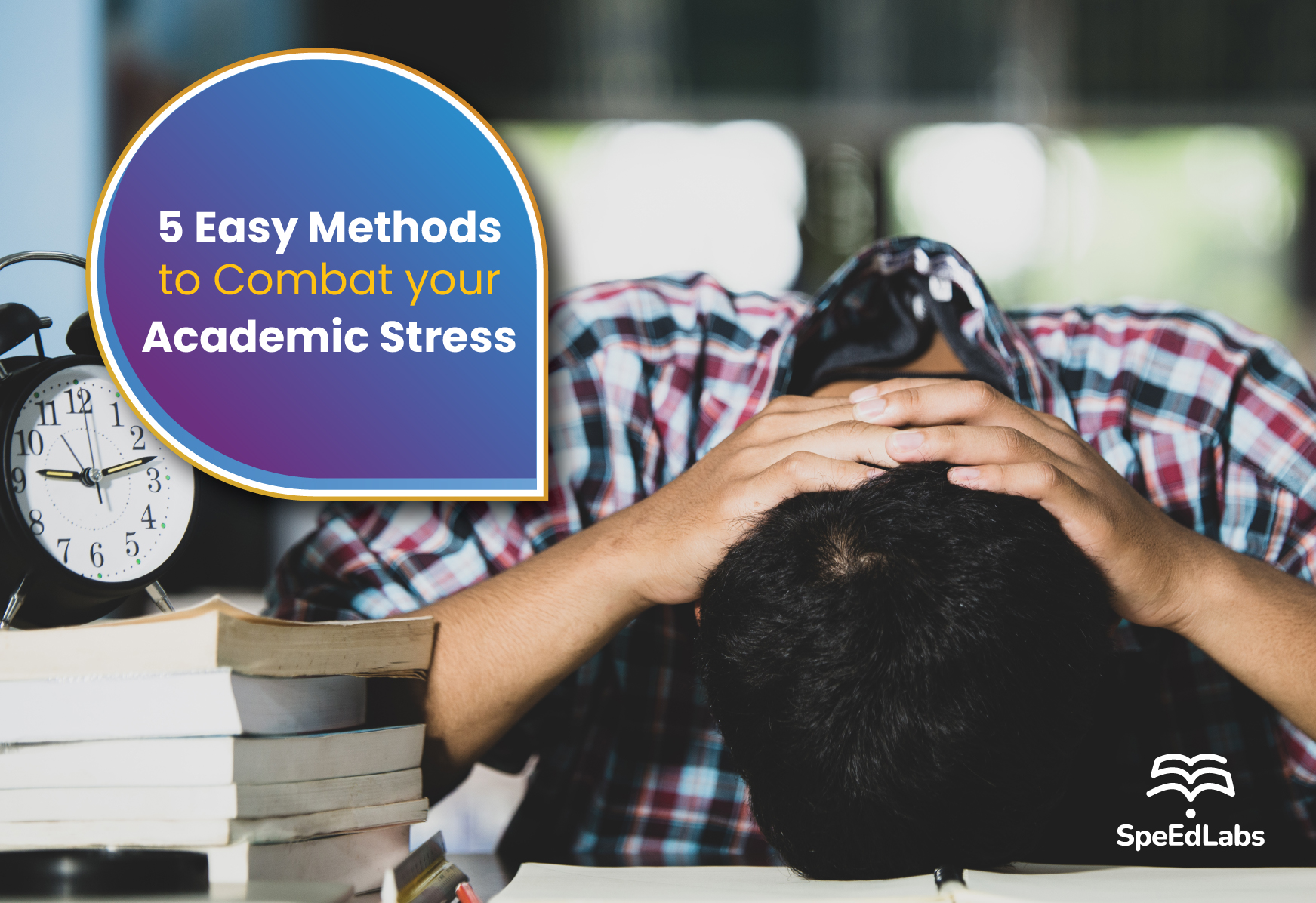Globalisation has given students valuable lessons inside the classroom, but there are few lessons on how to deal with emotions and dilemmas. Every child has to manage their emotional development at this time, which ultimately shapes the rest of their lives.
Students tend to withdraw from their regular activities when emotions interfere with competence beliefs, social activities, and stagnancy in schoolwork, so it is important to understand this syndrome better. This is the time when students experience deep anxiety and an overflow of emotions. The students need some techniques to self-manage their profuse emotions to stay on top of their studies and maintain their social presence. Students who assert their sovereignty will always have self-control and management skills that will guide them through life’s major transitions.
Common Causes of Academic Stress
Studies have shown that many high school students have chronic stress that persists into their college years and leads to academic disengagement and mental health issues.
Stress is commonly caused by the following sources:
- School
- Homework
- Extracurricular activities
- Transitions (e.g., moving out, living independently)
- Social challenges
- Pressure to succeed
- Relationships
- Work
A high school student’s life is filled with intense competition, such as taking challenging courses, accumulating impressive extracurriculars, studying and acing college placement tests, and making important and life-changing decisions. As they navigate high school social challenges, they also face personal challenges.
When students decide to attend college, this stress continues. Although stress is an unavoidable part of life, research shows that young adults are more likely to suffer from stress than others their age.
A new social circle, a more challenging workload, feeling pressured to succeed, and living without parental support all contribute to making this transition more challenging.
Students often realise that stress is a problem that needs to be relieved. It can be difficult, however, to find the time to try new stress relievers to help dissipate stress when a student’s schedule is filled with activities and responsibilities.
Prioritise Your Needs
Whether it is fashion or food, we all have choices, so why not in our studies? To address our urgent needs, we need to lay out a plan for approaching things that are more important. Keeping a balance between studies and fun activities can be challenging at times. We all prioritise the work we need to do (to achieve the desired outcome, such as CBSE papers) over the work we don’t want to do. Students are no different. The first step would be to rationalise what you do every day, reduce the urgent stuff, and prioritise short work over important stuff.
Strengthen Your Targets
Vacations and festive times allow students to have fun, but during this time, they also become lazy in their studies. In this case, there is a need for self-reinforcement. Make your own goals, set a target for you to achieve and be self-motivated. Suppose a student sets his or her goal of watching 30 minutes of television after every 2 hours of study. Currently, we are seeing a large number of hybrid learning options for kids and educational platforms that assist students in online learning. This is a platform where a student can set his or her targets based on class time and attendance. As soon as the student achieves the goal, he or she feels rejuvenated, which ultimately reinforces his or her ability to handle time and work better.
Learning is Determined
It is always healthy to mix fun and work together. It is important to extract learning from the fun you have. The new phase of learning is hybrid learning or personalised practice-based learning. As the saying goes, there are many tools in the toolbox to try. As a result, their behaviour will be transformed, and the result will be influenced. When a child is resolute about learning, they will become versatile in every way, and they will understand that learning is a purposeful, active process in which they play a leading role. A virtual classroom can certainly be a fun leisure activity that breaks up the monotony in the classroom and promotes positive learning.
Get Enough Sleep
Sleep deprivation is a common problem among students due to their packed schedules. If you do not get enough sleep, you are at a distinct disadvantage. As a result, you are less productive, may find learning more difficult, and may even be a hazard on the road. Researchers have found that sleep deprivation and daytime sleepiness are also linked to impaired mood, a greater risk for car accidents, lower grade point averages, decreased learning, and academic failure. Make sure you get enough sleep. Get at least 8 hours of sleep per night and take power naps when needed.
Exercise Regularly
Regular exercise is the healthiest way to release tension. Several studies have found that students who engage in regular physical activity feel less stressed. Even though these students still face the same social, academic, and life pressures as their less active peers, they feel less stressed and find it easier to deal with these challenges.
Exercise might seem challenging, but there are ways to incorporate more physical activity into your day. You might try these ideas:
- Practising yoga in the morning
- Getting to class by walking or biking
- Enrolling in an elective gym class that focuses on leisure sports or exercise
Also published on Medium.
